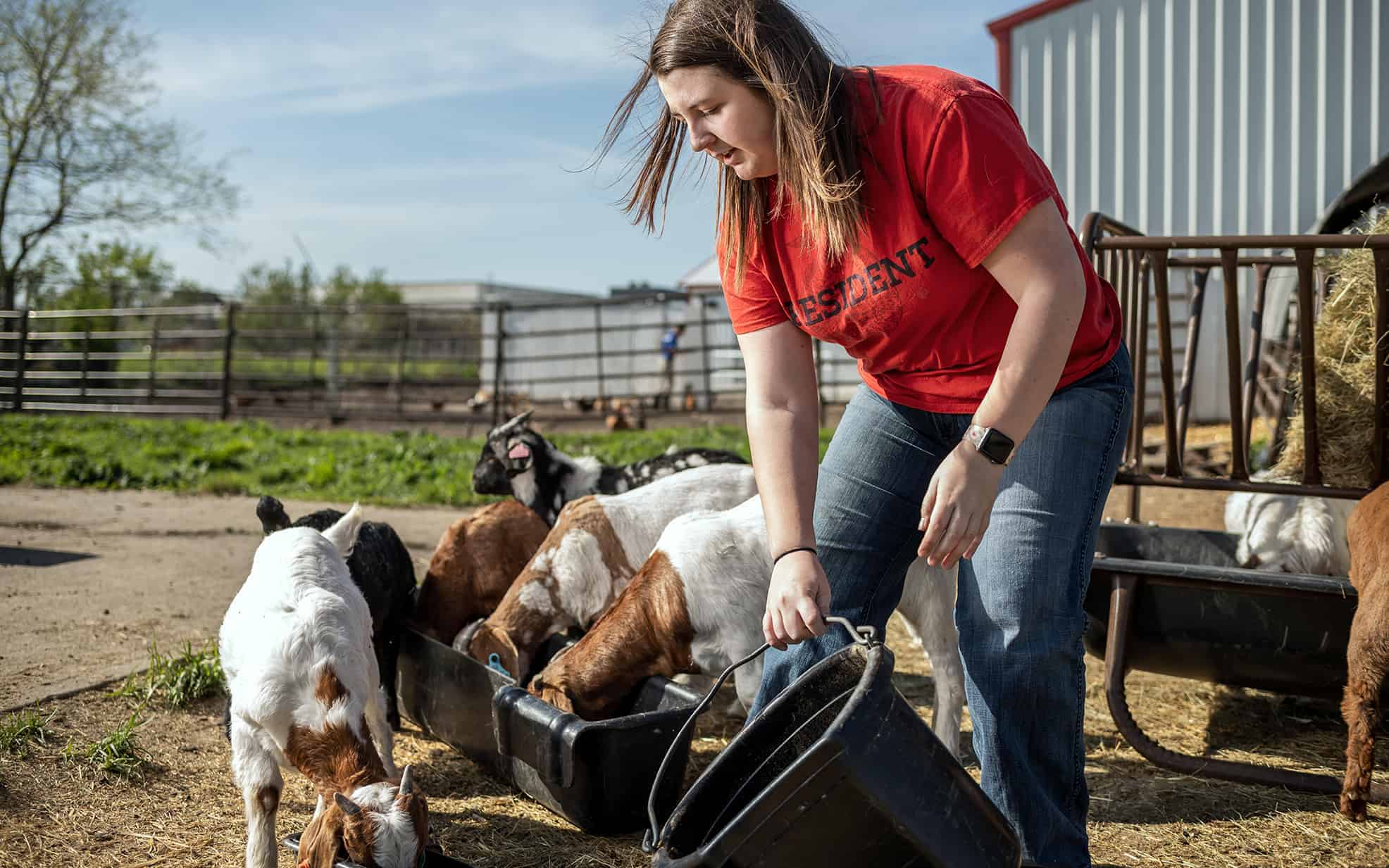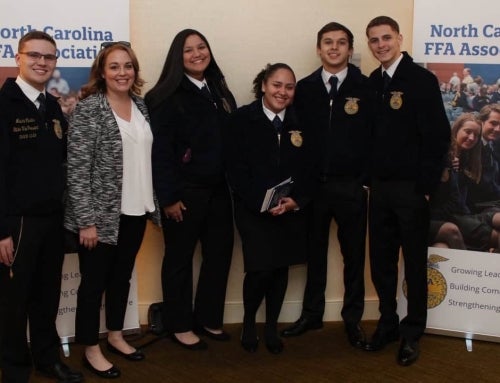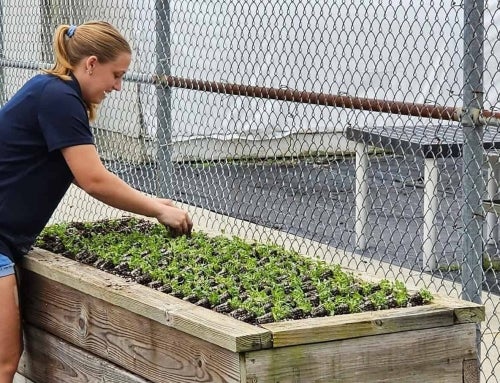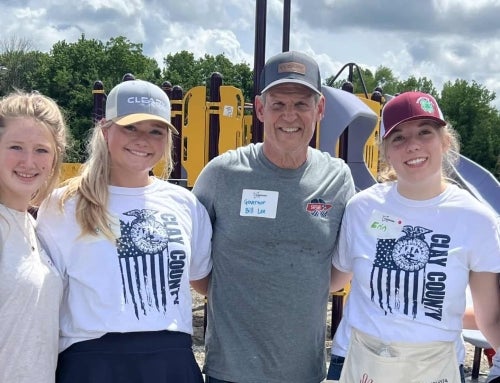
The veterinary science career development event (CDE) recently adopted a modern framework to deliver a case-based educational experience to help ensure FFA members are prepared to enter the workforce or continue their education in the field of veterinary medicine.
FFA members will be required to apply their knowledge and critical-thinking skills to real-life scenarios they are likely to encounter when working as a veterinarian, veterinary assistant or veterinary technician.
For example, rather than taking a generalized written exam, FFA members will be tested in a clinical situation and asked to answer specific questions regarding an animal in their care.
Students can expect to identify parasites, diseases, equipment and breeds, as well as demonstrate proficiency with administering medication, showcase their understanding of certain clinical procedures and more.
“Preparing for and competing in the veterinary science CDE was truly transformative for me, and I have no doubt its evolution will make it even more powerful for current and future FFA members,” says Dr. Meghan Marner, a Pima JTED FFA alumna from Tucson, Ariz., who took first place in the 2013 National FFA Veterinary Science CDE.
Today, Marner is a large animal veterinarian, working closely with horses, pigs, goats and cattle at the Adobe Veterinary Center in Tucson.
“I’m loving every second of my career,” says Marner, an Iowa State University College of Veterinary Medicine graduate. “I grew up with horses and always knew I wanted to work in the veterinary field, but it wasn’t until I competed in the veterinary science CDE that I could see myself as a veterinarian. It was a shot in the arm for me as a young person because I realized I had what it took to succeed, and it gave me the confidence to chase my dreams.”
Part of that confidence, she says, was built as she expanded her knowledge and learned how to apply it.
“This CDE exposed me to so many things — diseases, medicines and treatments, surgical procedures, and handling and restraining techniques, just to name a few,” Marner says. “Once I was in college, it was clear I had a leg up on many of my peers because I already had an understanding of what was brand new to them.”
Even now, Marner says the skills she developed while competing in the veterinary science CDE come in handy.
“I encourage anyone interested in becoming part of the veterinary community to participate in the veterinary science CDE,” Marner says. “You’ll learn more than you can possibly imagine, and I guarantee you won’t regret it.”
Learn about the 2023 Veterinary Science CDE changes in the video below.











